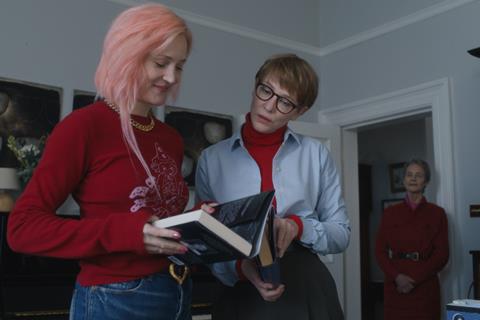
2025: the year that Venice finally, fully embraced politics.
Previously, the festival had been somewhat insulated from global events by the high wattage of its star power and the convenient cloud of glamour. But this year, there seemed to be a tacit acknowledgement that the public appetite for stock shots of George Clooney suaving™ into town by water taxi might be wearing thin, given the gravity of the news elsewhere.
Two independently organised pro-Palestinian demonstrations took place during the event, the second of which was among the largest yet seen at an international film festival. But the Biennale’s most overtly political official decision was to programme Tunisian director Kaouther Ben Hania’s searing docu-drama The Voice Of Hind Rajab in the main competition. Unfolding from the point of view of the volunteer phone operators who tried to save her, the film tells the shattering story of the killing of a six-year-old Palestinian girl by IDF forces.
The competition slot put a spotlight on the conflict and the plight of the people of Gaza. But it also rather passed the buck to the jury. President Alexander Payne and his fellow jurors will have been acutely aware that to award Ben Hania’s film the Golden Lion would be viewed as a political statement. But equally, so would a decision not to award the film the top prize.
The collective outpouring of anguish and anger that followed the highly charged premiere cemented the film as not just a frontrunner but as close as it’s possible to get to a sure thing. But, in fact, the film’s Golden Lion prospects were never cut and dried. The film employs the audacious but also contentious device of using the real audio recordings of phone calls between Red Crescent emergency response operators and the terrified child trapped in a car, along with the bodies of her relatives. It’s unbearably powerful, this window into the final few hours of Hind Rajab’s short life. But it’s also a device that prompts thorny ethical questions of consent and exploitation.
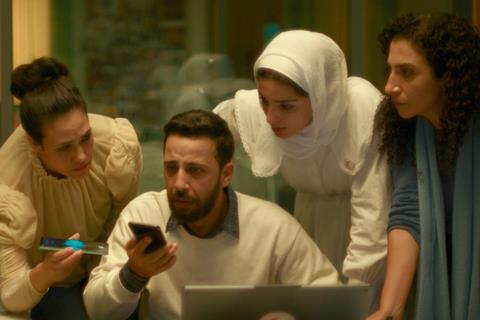
Plus there’s a tonal mismatch: there are a couple of overblown moments of melodrama that feel jarring and artificial when juxtaposed against the harrowing authenticity of the audio recordings. It’s a film which will likely generate impassioned responses, both pro and con, and possibly did so within the Venice jury. Oh, to be a fly on that particular wall.
Ultimately, the jury settled on the Silver Lion grand jury prize for The Voice Of Hind Rajab, but awarded the Golden Lion to Jim Jarmusch’s droll triptych, Father Mother Sister Brother. An amiable, small-scale charmer of a film, it was widely liked, but it was not a picture that figured prominently in speculative Golden Lion conversation. On the contrary, it seemed more likely the modest scope and gentle pleasures of Father Mother Sister Brother would be drowned out by other louder, bolder, more ambitious pictures in the competition.
But as last year’s Golden Lion for Pedro Almodovar’s mannered English-language debut The Room Next Door demonstrated, Venice juries can be partial to a legacy award for a white, male veteran filmmaker. Perhaps the Jarmusch win can be seen as a political statement after all, just not the one that many at the festival had expected or hoped for.
Benny Safdie’s Silver Lion for best director also caught many off guard. Most of the chatter following the premiere of Safdie’s solid sports biopic The Smashing Machine had focused on Dwayne Johnson’s endearing, oddly childlike performance as mixed-martial arts and UFC champion Mark Kerr. Safdie’s direction was unshowy and efficient but lacked some of the formal daring and febrile intensity of his collaborations with his brother Josh (Good Time, Uncut Gems).
Johnson was a weighty contender for the Volpi Cup for best actor, and may yet score his first Oscar nomination for his performance. But the actor prize went to Toni Servillo for Paolo Sorrentino’s La Grazia. Few would argue with that choice. Servillo is superb, delivering a magnetic performance that carries an uncharacteristically restrained and pensive picture from Sorrentino. He almost makes up for the film’s somewhat bloated running time.
Xin Zhilei, the star of the Chinese film The Sun Rises On Us All, deservedly took the Volpi Cup for best actress for her raw performance as a complex, conflicted woman wrestling with guilt.
Political themes were evident elsewhere in the competition, notably in two of the most widely admired titles, both of which went home without prizes. Kathryn Bigelow’s gripping ticking-clock thriller A House Of Dynamite imagined the real-time response to an impending nuclear strike on the US. It’s lean, urgent and utterly terrifying – Bigelow at her seriously impressive best.
Park Chan-wook’s No Other Choice was more broadly comic in tone, but its themes – casual corporate cruelty and the psychological cost to the jobless – felt timely.
Out of competition, Gus Van Sant’s wry true-life thriller Dead Man’s Wire tapped into similar territory with the story of Tony Kiritsis – think a proto Luigi Mangioni – who took the president of a mortgage company hostage in 1977. The film drew outbursts of spontaneous applause from audiences that clearly responded to the film’s CEO-bashing sentiments and David vs Goliath storyline.
Small pleasures
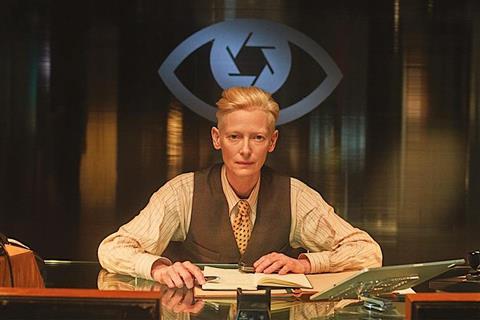
It was a strong year for non-fiction filmmaking, with many of the standout documentaries less overtly political than the dramas on offer. Gianfranco Rosi’s competition title Below The Clouds, which won the special jury prize, was widely admired, with several critics anointing it as their favourite of the festival. Rosi, a previous Golden Bear winner for Sacro GRA, impressed with this lyrical, affectionate examination of the soul of the city of Naples.
Screening out of competition was Broken English, Jane Pollard and Iain Forsyth’s thrillingly creative collaborative portrait of Marianne Faithfull. The picture not only elegantly acknowledges the fact that Faithfull died midway through the project but incorporates the fact into the film. It closes with footage of what would turn out to be Faithfull’s final performance – a scene of extraordinary potency.
Enough tears have been shed on the Lido this year to raise the level of the lagoon by several inches, and a fair few of them were prompted by the closing moments of Broken English.
Another idiosyncratic documentary gem was The Tale Of Silyan. Honeyland director Tamara Kotevska blends documentary and fable, real life and fairy tale for this gorgeous film about the bond between a grizzled Macedonian farmer and an injured white crane.
And a particular documentary highlight was Remake, the latest film from Sherman’s March director Ross McElwee. Raw, anguished, authentic, the film follows McElwee trying to process the death of his son Adrian in the way he has approached everything in his life: by turning his lens onto it.
Remake figured highly on the festival discovery lists of many delegates, as did Kent Jones’ Late Fame, which stars a refreshingly low-key Willem Dafoe as a failed poet whose work is rediscovered by a group of wildly pretentious Gen Z artists and aesthetes. It’s a deft little gem that explores nostalgia, artistic aspiration and layered Manhattan mythology, topped off with a knockout turn from Greta Lee. Distributors, take note.






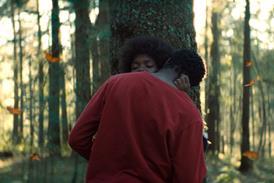
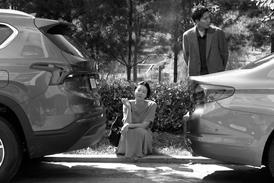

















No comments yet